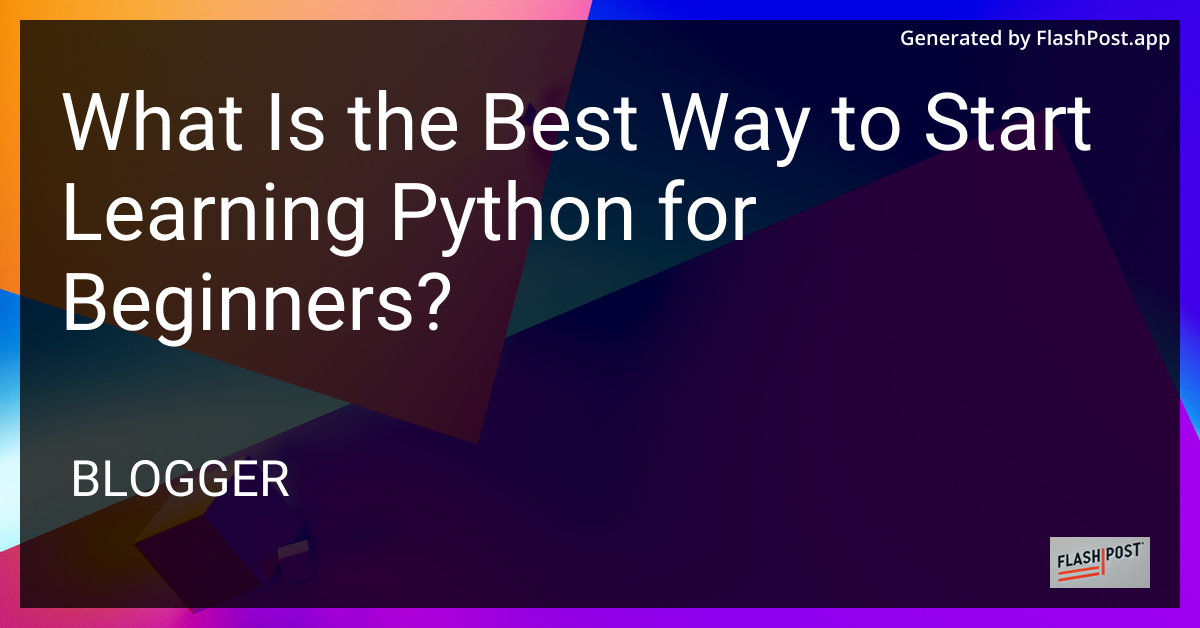What Is the Best Way to Start Learning Python for Beginners?

What is the Best Way to Start Learning Python for Beginners?
If you’re embarking on the journey to learn Python, you’re making a wise choice. Python is a versatile, high-level programming language that is widely used in various fields, from web development to data science and artificial intelligence. But as a beginner, you might be wondering what the best way to start learning Python is. In this article, we’ll guide you through several effective strategies and resources to kickstart your Python learning journey.
Why Choose Python?
Python is renowned for its simplicity and readability, making it particularly appealing to beginners. Its syntax is clear and concise, allowing new learners to grasp concepts without getting bogged down by complex semantics. Moreover, Python has a vast ecosystem of libraries and frameworks, opening doors to countless applications.
Steps to Start Learning Python
1. Understand the Basics
Before diving into complex projects, it’s crucial to build a strong foundation. Start with understanding basic programming concepts such as variables, data types, and control structures. You can find numerous free resources and courses, including:
Official Python Documentation: The official Python documentation provides an excellent introduction to the language.
Interactive Websites: Websites like Codecademy and Coursera offer interactive Python courses tailored for beginners.
2. Practice with Simple Projects
Once you have a basic understanding, practice by engaging with simple projects like calculators, web scrapers, or basic games. This hands-on approach helps in reinforcing what you’ve learned.
3. Join Online Communities
Be part of online communities such as Stack Overflow, Reddit’s r/learnpython, or Python-specific forums. Engaging with peers can offer support, expand your knowledge, and expose you to new learning opportunities.
4. Explore Libraries and Frameworks
As you become more comfortable, start exploring Python’s extensive libraries and frameworks. For example, learn about Python regex optimization for efficient text processing or delve into Python and PowerShell integration to automate tasks.
5. Build Real-World Applications
Building real-world applications is one of the most effective ways to learn Python. Try creating web applications using frameworks like Django or Flask. You can also experiment with GUI projects using the wxPython library, such as understanding wxPython inline styles.
6. Continuous Learning
Technology is constantly evolving, and staying updated is key. Follow Python-related blogs, subscribe to newsletters, and attend workshops to keep your skills sharp.
Conclusion
Learning Python is a rewarding experience, especially given its immense popularity and utility. By starting with basic concepts, practicing regularly, engaging with the community, and gradually advancing to complex projects, beginners can effectively master Python. Remember, consistency and practice are essential in mastering any programming language.
Start your Python journey today, and open the door to endless possibilities in the tech world!
Comments
Post a Comment